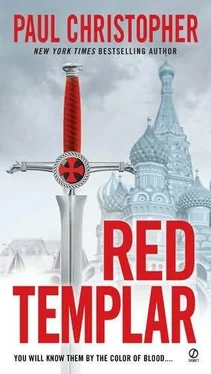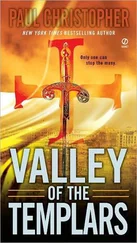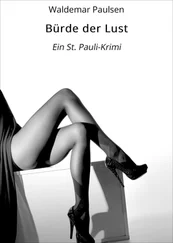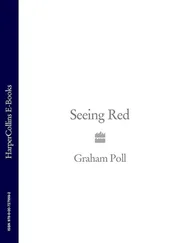Paul Christopher - Red Templar
Здесь есть возможность читать онлайн «Paul Christopher - Red Templar» весь текст электронной книги совершенно бесплатно (целиком полную версию без сокращений). В некоторых случаях можно слушать аудио, скачать через торрент в формате fb2 и присутствует краткое содержание. Жанр: Политический детектив, на английском языке. Описание произведения, (предисловие) а так же отзывы посетителей доступны на портале библиотеки ЛибКат.
- Название:Red Templar
- Автор:
- Жанр:
- Год:неизвестен
- ISBN:нет данных
- Рейтинг книги:3 / 5. Голосов: 1
-
Избранное:Добавить в избранное
- Отзывы:
-
Ваша оценка:
- 60
- 1
- 2
- 3
- 4
- 5
Red Templar: краткое содержание, описание и аннотация
Предлагаем к чтению аннотацию, описание, краткое содержание или предисловие (зависит от того, что написал сам автор книги «Red Templar»). Если вы не нашли необходимую информацию о книге — напишите в комментариях, мы постараемся отыскать её.
Red Templar — читать онлайн бесплатно полную книгу (весь текст) целиком
Ниже представлен текст книги, разбитый по страницам. Система сохранения места последней прочитанной страницы, позволяет с удобством читать онлайн бесплатно книгу «Red Templar», без необходимости каждый раз заново искать на чём Вы остановились. Поставьте закладку, и сможете в любой момент перейти на страницу, на которой закончили чтение.
Интервал:
Закладка:
“Shit,” said Brinsley Whitman Havers. What was it Kokum had said about the real reason they had case officers? To have someone to flush down the shithole when the whole thing came apart? Something like that. “I’ll be right there.” He sighed, already seeing the water swirling around the bowl, and him along with it.
39
The elevator opened up into someone’s pantry. Holliday could tell it was a pantry because the walls were lined with shelves, and the shelves were lined with cans and jars and boxes. The cans all had black-and-white illustrations of their contents on paper labels, as did the boxes. It was hard to tell about the jars, because over the years most of them had burst, their contents long turned to mold, the mold vanished into the air, leaving nothing but shriven remains behind, like mummified human organs in an Egyptian tomb. Everything in the little room was covered in a thick coat of gray dust. It had been a long time since anyone had taken food from here.
The only exit from the pantry led into a good-size kitchen equipped with thirties- or forties-era gas appliances. There was a wooden table and four straight chairs in the center of the room. Like everything else, the table and chairs were thick with dust. The floor was gray linoleum, the ceiling raw-pine beams and rafters. The windows above the big dry sinks were small, the plain dark curtains pulled.
The kitchen led in turn to a broad carpeted hallway with a set of stairs going up on the right. There were two doors beyond the stairs, one leading to a plainly furnished living room, the furniture old, upholstered and dreary. The other door led to a study. A velvet-upholstered banquette stood at the end of the hall beneath a row of wooden pegs still hung with heavy winter coats. Holliday eased Eddie down onto the banquette, his back against the patterned wallpaper.
“You rest here for a minute,” said Holliday. “I want to look around a bit and then we’ll be on our way.”
“ Lo que usted diga, mi amigo- whatever you say,” the Cuban answered weakly.
Holliday turned back and went into the study. There were windows on two walls and here the curtains were pulled back. It had snowed since they’d gone underground hours before, a thick, soft blanket of it at least six inches deep, the scattered birch trees throwing long, skeletal shadows. The study was filled with the strange blue light that comes when moonlight reflects off newly fallen snow, and the room had a surreal, almost sinister quality.
The study was large, with open beams like the kitchen and a pine plank floor covered in carpets of various sizes. There was a fireplace, a huge wooden desk, a high-backed leather chair and two straight chairs in front of it. Dust coated everything.
He went to the desk and stood behind the tall leather office chair. There was a circular brass pie rack complete with a sandpaper striker and a handful of wax-headed phosphorous matches, a photograph of an elderly woman and the most telling object of them all, one that Holliday had seen a thousand times before: a photograph of a bald-headed man wearing a white shirt, loosened multicolored tie and mirrored sunglasses sitting on a garden chair with a dark-haired young girl in ponytails, perhaps ten years old, sitting on his lap. The man had his arm possessively wrapped around her midsection. Behind him a secretary wearing headphones was transcribing dictation, and at a round rattan table a man in a gray uniform complete with Cossack boots was smoking a curved pipe and poring over a sheaf of papers spread out on the table in front of him.
The man in the mirrored sunglasses was Lavrenti Beria, head of the NKVD, later to become the KGB; the young girl was Svetlana Stalin, Joseph Stalin’s only legitimate child; the secretary with the headphones was Otto Kuusinen, Stalin’s private secretary and one of the very few people to survive the vast Stalinist purges; and the man in the uniform smoking the pipe-the same tooth-scarred pipe sitting in the rack in front of him-was Joseph Stalin himself.
Holliday breathed deeply. This was Stalin’s study in the “nearer dacha” at Kuntsevo, about thirty miles outside Moscow. Stalin had spent his last years here, and he had died here.
Holliday dropped the machine gun and the knapsack on the desk. He pulled out the big leather chair and dropped down into it, giving in to his fatigue for a few precious seconds.
He realized just how desperately tired he was, not only physically but mentally. The last years had taken their toll. Once upon a time he’d been a historian and a teacher, both roles that suited him well. Sometimes he yearned for the fresh faces of his kids at West Point, but he could see no way back along that path now. Ever since making his promise to the dying monk Rodrigues on that tiny volcanic island in the Azores, he’d gone down a rabbit hole of intrigue and conspiracy and into a dark world he’d never even suspected existed.
He opened the bloodstained knapsack and took out the manuscript that Genrikhovich had removed from the ornate Ark of the Covenant in the treasure chamber. It was bound in some dark animal skin, probably goat, the cover stiff with age. He opened it. The first page had a single line of script in ancient Aramaic, the language most likely to have been spoken by Christ.
Did it say what the Russian had read out so triumphantly-the Gospel of Yeshua ben Yusef, Jesus, son of Joseph? Holliday flipped through the long pages of small, neat script, the ink faded to a pale sepia. The upper and lower edges of the pages were roughly cut, which made sense if you assumed that such a document had originally been written on scrolls, then cut into pages sometime in the future.
Were they really the words of Christ, perhaps written in his own hand? Unlikely. Holliday had never heard a discussion of the topic, but Jesus was almost certainly functionally illiterate-he most probably could neither read nor write; such a level of education wouldn’t have been available to the son of a carpenter, and there was no documentation in any of the other gospels about Christ attending any kind of school. The gospel could have been physically written by one or more of his disciples, several of whom were known to be quite well educated.
Genuine, a fake, a fairy tale? And did it matter? One way or the other it was a time bomb and a document of immense power. Holliday traced a line of script with his finger. Was he touching the word of God?
It was the same with all religions: Jesus, Mohammed, Buddha, Confucius, the Dalai Lama, the gods of popularity cults, like Mao, Che, even Eddie’s aging Fidel-before they were revered they were men, and one way or the other, over time the ideas of these men were taken, misused, abused and eternally reinterpreted for reasons of power and personal gain. The Gospel of Yeshua ben Yusef would be no different; it would be used for other people’s ends and to satisfy other people’s needs.
Once more Holliday heard the dying words of Helder Rodrigues: Too many secrets, too many secrets. In that moment, with that memory clear and present in his mind, Holliday came to his decision, a decision that went against all the tenets of truth he’d ever been taught. A secret revealed was a secret that could never be made secret again, and some secrets were better left alone.
He flipped the manuscript over and tented it on the desk. He pulled open all the drawers on both pedestals of the desk and pulled out reams of old paper, brittle and yellow and tinder dry. The irony of what he was about to do and where did not escape him. He was keeping the bright secret of a holy man by destroying it in a place once occupied by one of the most unholy men ever to have walked the earth.
He reached out, took one of the wax-preserved phosphorous matches out of its holder and dragged it down the sandpaper strip. It sputtered for only a second, but then it burst into flame. Holliday gently touched the match to the brittle pages of the manuscript, watching them ignite, and in turn light the pile of papers he’d built up around it.
Читать дальшеИнтервал:
Закладка:
Похожие книги на «Red Templar»
Представляем Вашему вниманию похожие книги на «Red Templar» списком для выбора. Мы отобрали схожую по названию и смыслу литературу в надежде предоставить читателям больше вариантов отыскать новые, интересные, ещё непрочитанные произведения.
Обсуждение, отзывы о книге «Red Templar» и просто собственные мнения читателей. Оставьте ваши комментарии, напишите, что Вы думаете о произведении, его смысле или главных героях. Укажите что конкретно понравилось, а что нет, и почему Вы так считаете.











